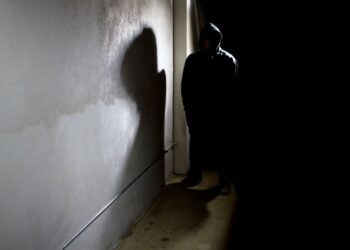“A house divided against itself cannot stand.” So said the most prominent person ever to come from the state of Illinois, Abraham Lincoln.
It thus is fitting that the “Land of Lincoln” is the setting for discussion and, no doubt, debate about how the age-old profession of court reporting is evolving in response to market forces. Those market forces include the arrival of technologies and corresponding practitioners who are capable of capturing a verbatim record of legal proceedings that meets the same uncompromising standard set by the current and previous generations of Illinois stenographers—digital reporting and voice reporting.
Those market forces also include this undeniable fact—an acute shortage of stenographers in Illinois already is requiring the state’s court reporting agencies to integrate digital reporters and voice reporters into a hybrid workforce to cover growing demand for court reporters within depositions. These are realities the state’s court systems were compelled to acknowledge many years ago, supplementing a diminishing supply of stenographers with digital reporting to ensure coverage of all legal proceedings that might require word-for-word transcripts of testimony.
Digital reporting and voice reporting are not here to replace stenographers; they are here to supplement stenographers. Second, all stenographers in the state of Illinois—whether 55 or 25 years of age—will have solid jobs as court reporters in the state for as long as they want them. That’s another market force that is at play. As the supply of stenographers further diminishes, the value of stenographers will increase. That’s the law of supply and demand.
If all of this is true—the stenographer shortage, the capabilities of digital reporting and voice reporting—why will a group of stenographers line up in Springfield in the coming weeks and argue to prevent legislation that legitimizes digital reporters and voice writers from operating as “court reporters” in Illinois?
The answer is simple: Pride. Fierce, well-earned pride.
Getting through court reporting school as a stenographer is monumentally difficult—mastering stenography “theory,” retraining your brain to think in shorthand sounds and syllables rather than words, and learning how to translate those sounds and syllables into keyword strokes to convert the spoken word to text at the threshold speed of 225 words per minute. It’s insanely difficult. And it’s why more than nine out 10 stenography students will drop out of school and never become court reporters.
As a result, those stenographers who make it through school and become court reporters have a common bond and that fierce pride. As a result, some stenographers—by no means all—consider it to be both a personal insult and a genuine threat to their livelihoods when someone dares to suggest or imply that non-steno technologies are capable of replicating the skills to which they’ve devoted their lifetimes to develop and the vocation they’ve vowed to protect.
To reiterate: There is—and will remain—an important role for stenographers in the world of court reporting. But the state of Illinois can no longer afford to entertain the fallacy the steadily declining number of stenographers can, should, or will singularly hold or define the role of “court reporter.”
Indeed, it will require a hybrid workforce of stenographers, digital reporters, and voice reporters—working together—to meet the growing demand for court reporting services and to ensure that the access to justice does not become a casualty of the exacerbating stenographer shortage.
There is plenty of court reporting work for all.
Being a lawyer and a thoroughly practical fellow, what would Old Honest Abe think of all this? He understood there is strength in unity. So do I. I believe court reporting should offer a “big tent” for all court reporting methods, including hybrid combinations. I believe attorneys and others involved with hiring court reporters deserve a choice.
I also know that the solution to the shortage of stenographers isn’t stenography versus digital reporting and voice reporting. The solution must include all three of these technologies as we look forward to new technologies that will supplement these three.
So, here are seven facts that must be front-and-center in every conversation as we work collaboratively on solutions to the stenographer shortage in Illinois:
- The number of Illinois stenographers has dropped by more than 25 percent over the past nine years – from 2,070 in 2013 to an estimated 1,500 in 2022.1
- The number of Illinois stenographers will drop to an estimated 865 by 2033.2
- The current shortage of stenographers in Illinois is estimated to be 550 based on market demand. That shortage will grow to more than 1,300 by 2033.3
- Fewer than one in ten stenographers who enroll in stenography school become court reporters.
- With a graduation rate of less than 10 percent, it would take the enrollment of more than 5,500 stenography students to fill the current stenographer shortage, just in Illinois. Nationally, there are no more than 2,500 students enrolled as stenography students.4
- In 2002, the number of stenography schools in Illinois was more than a dozen; it is now three.
- National standards already exist for digital reporters and voice reporters through national organizations. The next step is to establish standards that apply to all technologies and the court reporters that use them.
There’s no doubt that it would be easier to do nothing in Illinois and elsewhere, to wait for courts and other legal proceedings to experience such heavy backlogs that no one could dispute the need to change laws and rules to allow for digital reporters and voice reporters. But it would be reckless to subject our legal system to such high risk when the need already is acute, and the solution is so clear.
And because I couldn’t find a relevant Mike Ditka quotation to seal the argument, let us return to Abraham Lincoln: “You cannot escape the responsibility of tomorrow by evading it today.
Footnotes
- NCRA’s “Ducker Report” (2014) and STTI “Stenographer Shortage Analysis” (2019)
- STTI “Stenographer Shortage Analysis” (2019)
- NCRA’s “Ducker Report” (2014) and STTI “Stenographer Shortage Analysis” (2019)
- STTI “Stenographer Shortage Analysis” (2019)








